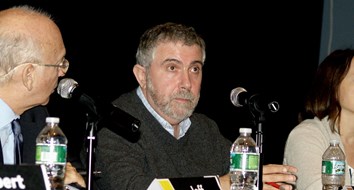Portland House of Pizza has been around for 30 years. Restaurant manager Craig Allare hopes it will be around another 30 years.
But now he’s left trying to figure out how to keep that dream alive after the passage of a minimum wage hike that has many businesses in Portland, Maine worried.
"It's going to hurt everyone. It's not like we have money trees out in the back parking lot. You have to make money to pay money," Allare told a local news outlet. “Some places will go out of business.”
While Florida, which on Tuesday passed a $15 an hour minimum wage referendum, was the only state to have the minimum wage on the ballot in 2020, some localities also voted on the issue.
One of those cities was Portland, the largest city in Maine. The referendum sought to increase the minimum wage from $12 an hour to $15 by 2024. The measure also mandated that workers receive time and a half during a civil emergency (like, say, a pandemic).
Despite opposition from the city’s mayor, seven members of the city council, and dozens of Portland businesses, the measure passed with 60 percent of the vote. That means as early as next month the minimum wage will be $18 an hour, since Maine has declared a civil emergency. (The time-and-a-half will kick in on the $12 minimum wage.)
Businesses already ravaged by stay-at-home orders from the coronavirus have expressed worry about how they will manage to stay in the black.
"In the last 7 months business has dropped from 30 to 50 percent and food costs have skyrocketed. This added increase on a business already depressed due to the pandemic is tough,” one Portland business owner who declined to speak on camera told WCSH, an NBC-affiliate. “We may have to either cut employee hours or cut back on business hours."
Cutting employee hours is just one of the ways employers negatively respond to laws that artificially raise the price of labor. Other responses include cutting other forms of compensation, such as health care or 401k benefits, replacing workers with robots, and simply assigning employees to do more work.
These are hardly the only unintended consequences. For example, economists David Neumark and William Wascher found that higher minimum wages decrease the number of teens enrolled in high school because they encourage high-skilled teens to drop out; this in turn displaces low-skilled workers.
“These findings are consistent with the prediction of a competitive labor market model that recognizes skill differences among workers,” the economists concluded. “In addition, we find that displaced lower-skilled workers are more likely to end up non-enrolled and non employed.”
This fits the perennial pattern of minimum wage laws: they end up hurting the very people they are designed to help. Workers with the fewest skills find themselves sidelined because they are priced out of labor markets.
As economist Walter Block has pointed out, the minimum wage is hardly an equal opportunity destroyer.
“Teens in general suffer more from this law than do adults. Each succeeding increase in the minimum wage has negatively impacted teenage unemployment rates,” Block and Kevin Sohr have observed. “Just as the minimum wage attacks the young more than the old, it also harms blacks more than whites.”
As I’ve pointed out before, minimum wage laws are the Jason Voorhees and Freddy Krueger of economics: they refuse to die.
This is partly because the costs of the minimum wage are often hidden from view. But these costs do not go away just because they are invisible.
Sadly, the sharp minimum wage increases in Florida and Maine will soon give us an abundance of evidence that will reveal a truth Americans have forgotten.
For More Reading:
The Case for Abolishing Minimum Wage Laws
5 Reasons Raising the Minimum Wage Is Bad Public Policy
The New York Times Explains Why the Minimum Wage Should Be $0.00
Why the Minimum Wage Can’t Solve the Poverty Problem
Support for $15 Minimum Wage Plummets When Americans Are Told Its Economic Impact





